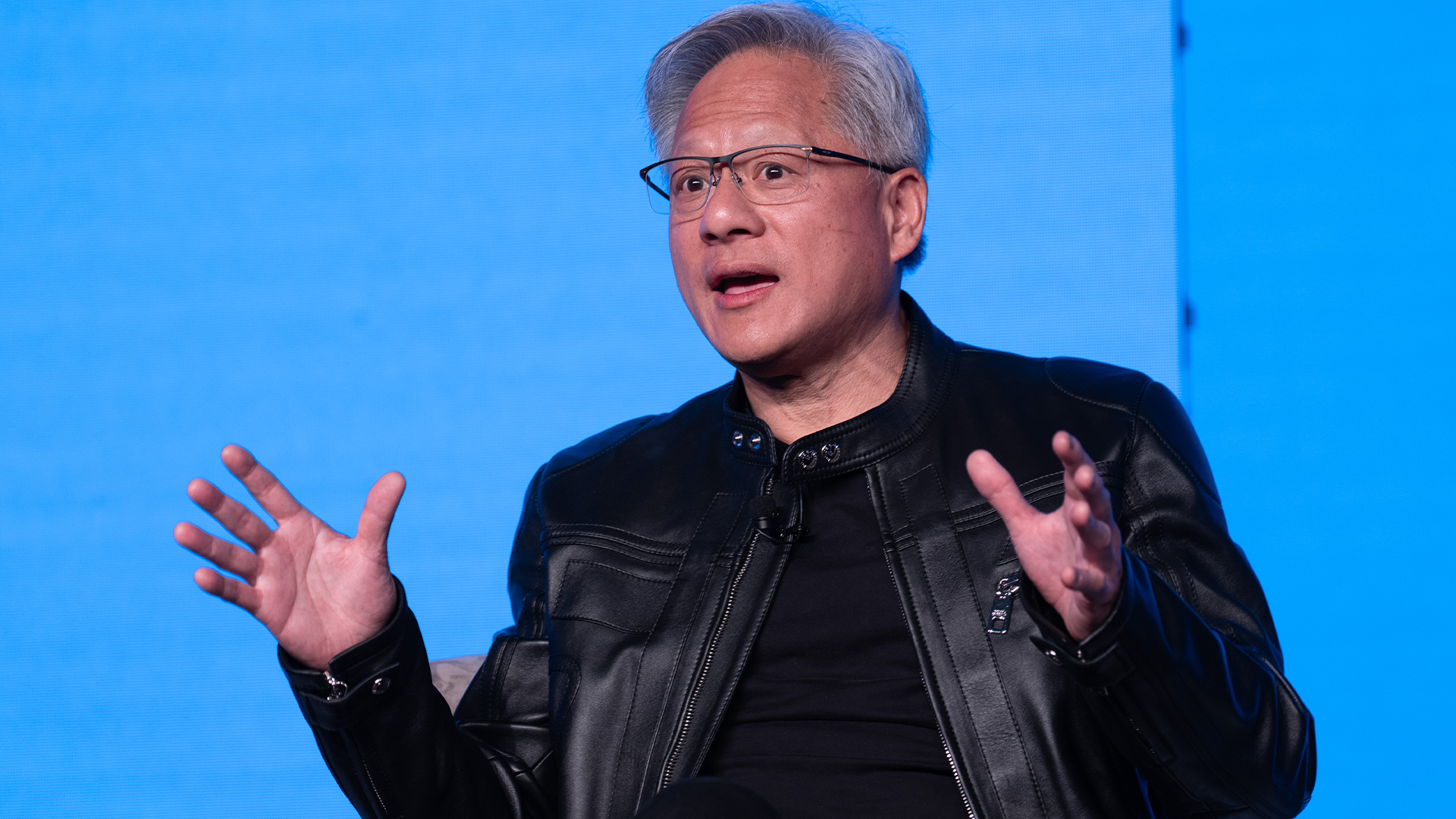Qualcomm and Capgemini to launch end-to-end 5G private networks
The two firms are collaborating on non-public, high bandwidth, ultra-low latency networks for industrial IoT settings


Sign up today and you will receive a free copy of our Future Focus 2025 report - the leading guidance on AI, cybersecurity and other IT challenges as per 700+ senior executives
You are now subscribed
Your newsletter sign-up was successful
Qualcomm and Capgemini are partnering up to launch off-the-shelf 5G-powered private networks for large enterprises as well as smart factories and IoT settings.
This collaboration will see Qualcomm provide the 5G technology and Capgemini step into the role of systems integrator as they build end-to-end networks that businesses can buy and set up without having to manage the infrastructure themselves.
These off-the-shelf systems will be designed to provide organisations with highly reliable interoperability in an ecosystem of connected devices, IoT equipment, and networking infrastructure.
Qualcomm will provide the core networking technology in the form of its flagship 5G RAN infrastructure platform, while Capgemini will liaise with clients to fine tune their configurations and support their digital transformation efforts.
“This collaboration with Qualcomm Technologies aims to help us provide a simplified yet powerful end-to-end private network solution for clients in all industries,” said Capgemini’s group leader of 5G and edge computing, Fotis Karonis.
“By utilising Qualcomm Technologies’ expertise in cellular connectivity with Capgemini’s industry leading business transformation services and systems integration capabilities, we envision that more and more companies will be able to benefit from cellular private networks to increase efficiency and speed of innovation.”
RELATED RESOURCE

Private 5G networks are local area networks (LANs) that can deliver ultra-low latency and high bandwidth connections to support intensive applications, such as those driven by AI.
Sign up today and you will receive a free copy of our Future Focus 2025 report - the leading guidance on AI, cybersecurity and other IT challenges as per 700+ senior executives
They serve as dedicated high-powered networks with interoperability for a multitude of devices and services, alongside the security benefits of a closed-off environment that’s inaccessible beyond the confines of the business.
These 5G-powered private networks will also support customers’ data-intensive workloads that can benefit from the high bandwidth and lower latency that this form of infrastructure brings.
Neither company has stated whether the private networks will be limited by geography, although Qualcomm Europe’s senior VP Enrico Salvatori has signalled ambitions to launch private networks across the world.
“We believe there are powerful benefits and some really exciting use cases already available in private networks today,” he added, “especially when you integrate 5G functionality, enhanced privacy and all the other features which arrive with 5G standalone.”

Keumars Afifi-Sabet is a writer and editor that specialises in public sector, cyber security, and cloud computing. He first joined ITPro as a staff writer in April 2018 and eventually became its Features Editor. Although a regular contributor to other tech sites in the past, these days you will find Keumars on LiveScience, where he runs its Technology section.
-
 Anthropic promises ‘Opus-level’ reasoning with new Claude Sonnet 4.6 model
Anthropic promises ‘Opus-level’ reasoning with new Claude Sonnet 4.6 modelNews The latest addition to the Claude family is explicitly intended to power AI agents, with pricing and capabilities designed to attract enterprise attention
-
 Researchers call on password managers to beef up defenses
Researchers call on password managers to beef up defensesNews Analysts at ETH Zurich called for cryptographic standard improvements after a host of password managers were found lacking
-
 Sovereign infrastructure spend to triple in Europe as fifth of workloads stay local
Sovereign infrastructure spend to triple in Europe as fifth of workloads stay localNews Gartner says global spending on sovereign cloud infrastructure will climb 35% over the next year
-
 Majority of English data centers use less water than a 'typical leisure center' as operators embrace new cooling methods
Majority of English data centers use less water than a 'typical leisure center' as operators embrace new cooling methodsNews England’s data centers are surprisingly efficient when it comes to water consumption
-
 ‘Too many organizations assume they’re more resilient than they actually are’ – UK firms are facing huge financial losses from IT outages and downtime
‘Too many organizations assume they’re more resilient than they actually are’ – UK firms are facing huge financial losses from IT outages and downtimeNews Many organizations are failing to put in place contingencies for IT outages and downtime, research shows
-
 Meta is working on a 5GW data center to supercharge AI infrastructure – and Mark Zuckerberg says one cluster alone ‘covers a significant part of the footprint of Manhattan’
Meta is working on a 5GW data center to supercharge AI infrastructure – and Mark Zuckerberg says one cluster alone ‘covers a significant part of the footprint of Manhattan’News Mark Zuckerberg detailed plans for a huge infrastructure investment program in a post on Threads earlier this week – here's what you need to know.
-
 So much for data sovereignty — AI infrastructure is dominated by just a handful of countries
So much for data sovereignty — AI infrastructure is dominated by just a handful of countriesNews Oxford researchers suggest AI infrastructure will decide a nation's global impact in the future, just as oil production has over the last few decades.
-
 ‘This is the largest AI ecosystem in the world without its own infrastructure’: Jensen Huang thinks the UK has immense AI potential – but it still has a lot of work to do
‘This is the largest AI ecosystem in the world without its own infrastructure’: Jensen Huang thinks the UK has immense AI potential – but it still has a lot of work to doNews The Nvidia chief exec described the UK as a “fantastic place for VCs to invest” but stressed hardware has to expand to reap the benefits
-
 Google shakes off tariff concerns to push on with $75 billion AI spending plans – but analysts warn rising infrastructure costs will send cloud prices sky high
Google shakes off tariff concerns to push on with $75 billion AI spending plans – but analysts warn rising infrastructure costs will send cloud prices sky highNews Google CEO Sundar Pichai has confirmed the company will still spend $75 billion on building out data centers despite economic concerns in the wake of US tariffs.
-
 Cisco wants to capitalize on the ‘DeepSeek effect’
Cisco wants to capitalize on the ‘DeepSeek effect’News DeepSeek has had a seismic impact, and Cisco thinks it has strengths to help businesses transition to AI-native infrastructure